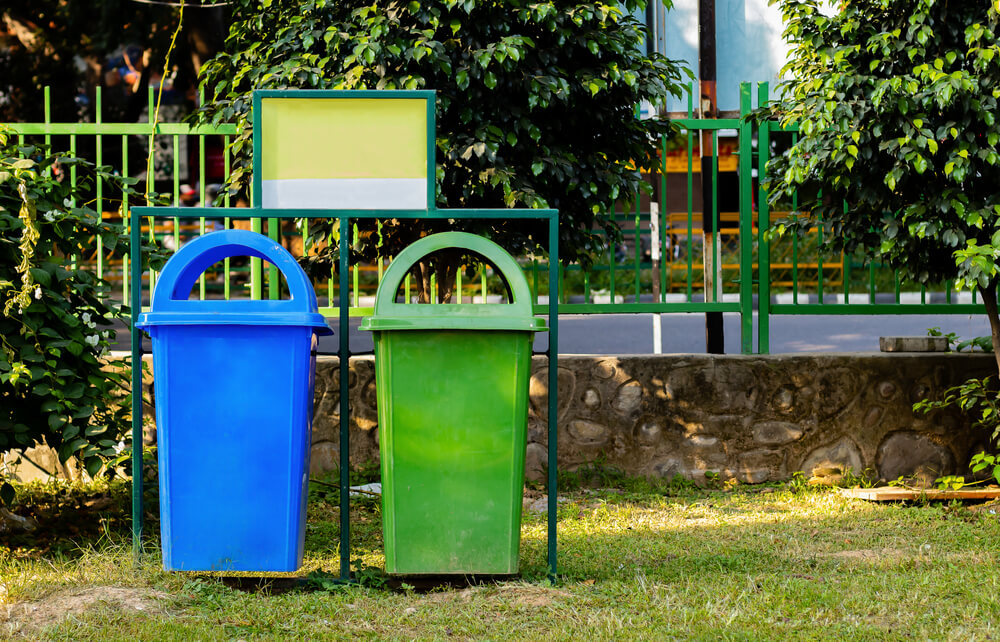Over the past few decades, humans have made efforts to reduce, recycle and manage waste.
The sad news is that we still create a lot of trash each day.
EPA states that an average American generates around 4.9 pounds of waste each day as of 2018. 80% of the trash comprises wet and dry garbage.
But the popular argument is that all biodegradable wastes are wet wastes.
That’s true. Kitchen waste such as tea leaves, vegetable/fruit peels, etc., including flowers and leaves, are all wet wastes.
Since wet wastes comprise all organic materials, they biodegrade naturally in the environment.
We’ll explain the idea that all biodegradable wastes are wet wastes.
What is a Wet Waste?
Wet waste refers to organic waste which can get changed into compost over a certain period. We know these wastes as biodegradable wastes.
It means that they can break down into simpler organic matter through decomposition by microorganisms.
These wastes can include:
- Food waste
- Kitchen waste like vegetable/fruit peels, tea leaves, eggshells, etc.
- Plant waste like leaves. flowers
- Animal waste such as meat and bone
- Paper waste, etc.
What is Dry Waste?
Dry waste refers to solid wastes which cannot decompose over a short period. Non-biodegradable is the best term to describe dry wastes.
They can’t break down into simpler molecules by the action of microorganisms.
They include:
- Plastic waste
- Metal waste
- Electronic waste, etc.
All Biodegradable Wastes are Wet Wastes?
Yes, all biodegradable wastes are wet wastes.
These wastes can naturally break down and decompose or rot away into simpler substances with the aid of microorganisms.
That’s without leaving any harmful residues.
This means that biodegradable wastes are the most suitable for composting.
The resulting compost can improve soil quality, providing a natural fertilizer to grow plants.
How do Wet Wastes Biodegrade?
Biodegradable wastes are often organic. They contain natural materials like wood, paper, food scraps, and animal manure.
Microorganisms can decompose these wastes by breaking down the complex organic molecules into simpler substances like water, carbon dioxide, and methane.
These microorganisms are present in the soil and water.
They also exist in the air. When these organisms come into contact with biodegradable wastes, they break them down.
But the rate of biodegradation depends on various aspects.
Factors that Influence the Rate of Biodegradation of Wet Wastes
1. Type of waste
Some wet wastes get broken down faster than others. Food wastes like fruit/vegetable peels take about 2 days to several weeks to biodegrade completely.
Other wet wastes like paper may biodegrade after a few months.
2. Type of microorganisms
Some organisms are more efficient than others. They can break down the wastes faster and completely.
These organisms can get isolated then cultivated in the laboratory for large-scale use.
3. Oxygen supply
If the waste gets buried in anaerobic conditions, it will not break down quickly and efficiently. The microbes may die or break down the wet waste slowly.
That may lead to a buildup of waste that pollutes the environment.
In aerobic conditions, the waste gets broken down rapidly. That’s because the microbes are active and are in large numbers.
For this reason, you should ensure that your septic tank is in an area that gets good air circulation.
4. pH of soil
The pH level of the soil affects the rate of decomposition. Microbes survive and are active in an environment with a pH level between 5.5 and 8.
But the optimal pH for composting is 7.0 to 7.5, which is neutral soil.
If the ground has a high pH level, it is alkaline. You’ll need to add acidic compounds to neutralise the pH levels.
5. Temperature
The optimal temperature for biodegradation of wet wastes is between 135 and 160 degrees Fahrenheit. If the temperature is too low, then the microbes will not survive.
If it is too high, then the microbes will die. In either case, decomposition will not occur.
6. Moisture level
The moisture content of the waste also affects how fast it breaks down.
There should be enough moisture in the compost pile to keep the microbes alive.
If there is not enough moisture, then the microbes will die, and decomposition will not occur.
In case of too much water, the decomposition process will be slow because of the high moisture level.
The moisture level should be constant at around 50% of the compost pile.
Is Wet Waste Compostable?
Yes, wet wastes are all biodegradable materials. That means they will decompose in a compost pile for a certain period to create humus, biogas, methane gas for energy generation.
However, the time and speed of decomposition may vary depending on the type of wet waste dumped in the compost pit, oxygen supply, temperature, moisture, and other factors.
The good news is that different countries offer composting programs or facilities.
They help homeowners turn their wet biodegradable wastes into compost.
The United States, for example, has an active composting program.
In addition, the U.S. Environmental Protection Agency (EPA) provides a free composting guide to help homeowners start their composting programs at home.
You can also find the location of composting facilities in your area.
Several companies offer to pick up the wet biodegradable wastes from your home and turn them into compost for you.
Composting is a fantastic way to recycle your wet wastes.
The process involves turning biodegradable wet wastes into a valuable source of energy through methane gas collection and biogas generation.
The process involves the collection of wet wastes.
After that, the wastes get sorted and segregated into organic and inorganic waste.
The organic waste then gets stored in a covered area to allow composting to begin.
These wet wastes get turned over periodically using a tumbler.
The composting process takes place in oxygen and microorganisms, which convert the organic waste into compost.
Conclusion
All biodegradable wastes are wet wastes.
Wet waste is an organic matter that can get processed to remove water.
The result is a high concentration of organics such as food, plants, and animal wastes.
Such wastes are biodegradable, meaning that they can get broken down by naturally occurring microbes.
These microorganisms digest the organic matter, converting it into carbon dioxide, water, inorganic compounds, and biomass.


